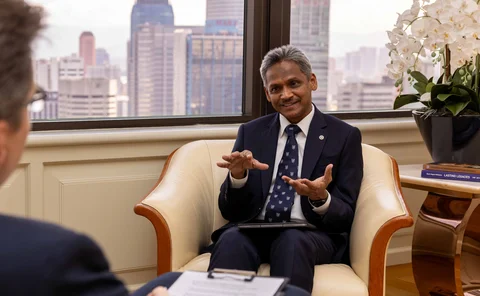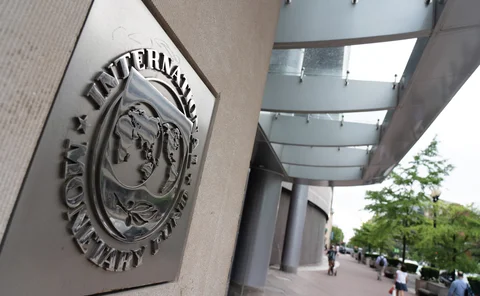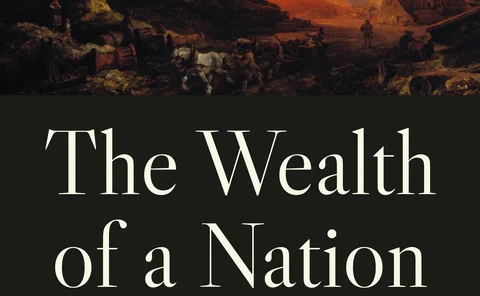International
Malaysia’s Rasheed expects a “bumpy road” for EM currencies
Governor Abdul Rasheed Ghaffour says BNM will intervene if needed ahead of future Fed cut; rules out capital controls but has encouraged institutions to repatriate earnings
BNM’s Rasheed on inflation, growth and currency performance in emerging markets
Bank Negara Malaysia’s governor speaks about balancing inflation and growth, supporting the ringgit, multilateral currency settlement and greening Islamic finance
Masaaki Shirakawa on his ‘unease’ about 2% inflation targets and lessons from Japan
The former Bank of Japan governor speaks with Christopher Jeffery about the need to properly understand the business of banking, making sound contingency plans and the BoJ’s current policy constraints
BIS profit rises as balance sheet grows
Institution close to completing five-year strategic plan, as deposits hit record high
Monetary policy could face ‘tougher tests’ ahead, BIS warns
Soft landing “in sight”, but pricing imbalances, fragile fiscal policy and financial vulnerabilities loom
Payments Benchmarks 2024 – model banks analysis
Breakdowns of key data from the payments benchmark shed light on how the function is governed
Economists explore 200 years of data on sovereign defaults
“Serial restructurings” are on the rise, with investors taking an average haircut of 45%
Simpler models can capture dynamics of Hank framework – NBER paper
Heterogeneity can be “irrelevant” to determining output in some situations, authors find
Expanded IMF mandate presents ‘serious’ challenges, review finds
Independent review finds staff have been overstretched by work on climate, gender and technology
Book notes: The wealth of a nation, by Geoffrey Hodgson
This book provides a deep dive into the economic and institutional transformations that supported the rise of English capitalism
Central banks continue climate action despite political pressure
Reserve managers are expanding green investments, as some incorporate “double materiality”
Non-banks in RTGSs: greater efficiency or more risk?
Policy-makers and practitioners from central banks in Brazil, Hungary, Israel, Romania, Rwanda and the US share their perspectives
Four central banks commit to responsible artisanal gold principles
Colombia, Ecuador, Mongolia and the Philippines commit to principles aimed at guiding domestic small-scale, gold-buying schemes
Ransomware payments can be necessary, say panellists
Paying off hackers may be only way to safeguard financial stability, despite risks
Most central banks resistant to crypto in retail payments
Just six central banks are open to retail payments being facilitated by digital assets like bitcoin
Lessons from the banking turmoil of 2023
Guardrails on capital, liquidity, deposit insurance, resolution, digitalisation and disintermediation need a rethink
Lkhagvasuren Byadran on geopolitics, gold and 100 years of central banking on the steppe
Bank of Mongolia governor Lkhagvasuren Byadran speaks about monetary and financial reform, embracing AI and fintech, and Mongolia’s new SWF
Banknotes: April to June 2024
A round-up of news and salient issues that have affected central bankers in the past three months
People: April to June 2024
A round-up of central bankers in the news and on the move during the past three months
Are low-level inflation targets still fit for purpose?
Geostrategic shifts make the case for a narrow price target less compelling
Book notes: Balance of power: central banks and the fate of democracies, by Éric Monnet and translated by Steven Rendall
This short book offers partial insights, but ultimately underwhelms
Acemoglu questions productivity benefits of AI
MIT economist finds weak productivity gains from AI and says benefits may be undermined by costs
Artificial intelligence: key questions for financial supervisors
Manoj Singh outlines what supervisors need to be asking as they learn to interrogate machines
Risks facing central banks: action and inaction
Unlike Fed policy in the 1990s, central bank actions this century do not appear overly accommodative, given poor policy decisions elsewhere, writes Andrew Smithers























